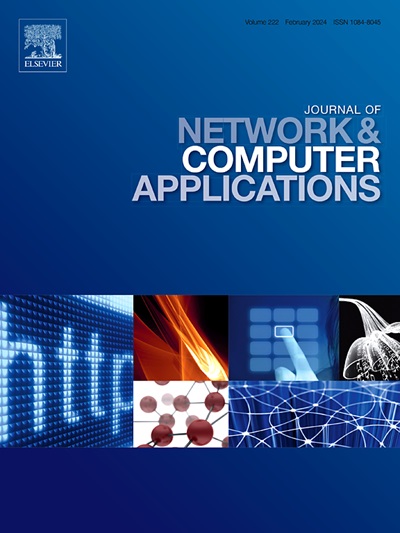Reinforcement learning based mobile charging sequence scheduling algorithm for optimal stochastic event detection in wireless rechargeable sensor networks
IF 8
2区 计算机科学
Q1 COMPUTER SCIENCE, HARDWARE & ARCHITECTURE
引用次数: 0
Abstract
Mobile charging provides a new way for energy replenishment in Wireless Rechargeable Sensor Network (WRSN), where the Mobile Charger (MC) is employed for charging sensor nodes sequentially according to the mobile charging sequence scheduling result. Event detection is an essential application of WRSN, but when the events occur stochastically, Mobile Charging Sequence Scheduling for Optimal Stochastic Event Detection (MCSS-OSED) is difficult and challenging, and the non-deterministic detection property of the sensor makes MCSS-OSED complicated further. This paper proposes a novel Multistage Exploration Q-learning Algorithm (MEQA) for MCSS-OSED based on reinforcement learning. In MEQA, MC is taken as the agent to explore the space of the mobile charging sequences via the interactions with the environment for the optimal Quality of Event Detection (QED) evaluated by both considering the sensing probability of the sensor and the probability that events may occur in the monitoring region. Particularly, a new multistage exploration policy is designed for MC to improve the exploration efficiency by selecting the current suboptimal actions with a certain probability, and a novel reward function is presented to evaluate the MC charging action according to the real-time detection contribution of the sensor. Simulation results show that MEQA is efficient for MCSS-OSED and superior to the existing classical algorithms.
基于强化学习的无线可充电传感器网络随机事件最优检测移动充电序列调度算法
移动充电为无线可充电传感器网络(WRSN)提供了一种新的能量补充方式,移动充电器(MC)根据移动充电顺序调度结果对传感器节点进行顺序充电。事件检测是WRSN的重要应用,但当事件随机发生时,针对最优随机事件检测的移动充电序列调度(MCSS-OSED)是一个难点和挑战,而传感器的不确定性检测特性使MCSS-OSED更加复杂。提出了一种基于强化学习的MCSS-OSED多阶段探索q学习算法。在MEQA中,MC作为智能体,通过与环境的相互作用来探索移动充电序列的空间,通过考虑传感器的感知概率和监测区域可能发生事件的概率来评估最优事件检测质量(QED)。设计了一种新的多阶段探索策略,通过选择具有一定概率的当前次优行为来提高MC的探索效率,并提出了一种新的奖励函数,根据传感器的实时检测贡献来评估MC的收费行为。仿真结果表明,MEQA算法在MCSS-OSED中是有效的,优于现有的经典算法。
本文章由计算机程序翻译,如有差异,请以英文原文为准。
求助全文
约1分钟内获得全文
求助全文
来源期刊

Journal of Network and Computer Applications
工程技术-计算机:跨学科应用
CiteScore
21.50
自引率
3.40%
发文量
142
审稿时长
37 days
期刊介绍:
The Journal of Network and Computer Applications welcomes research contributions, surveys, and notes in all areas relating to computer networks and applications thereof. Sample topics include new design techniques, interesting or novel applications, components or standards; computer networks with tools such as WWW; emerging standards for internet protocols; Wireless networks; Mobile Computing; emerging computing models such as cloud computing, grid computing; applications of networked systems for remote collaboration and telemedicine, etc. The journal is abstracted and indexed in Scopus, Engineering Index, Web of Science, Science Citation Index Expanded and INSPEC.
 求助内容:
求助内容: 应助结果提醒方式:
应助结果提醒方式:


